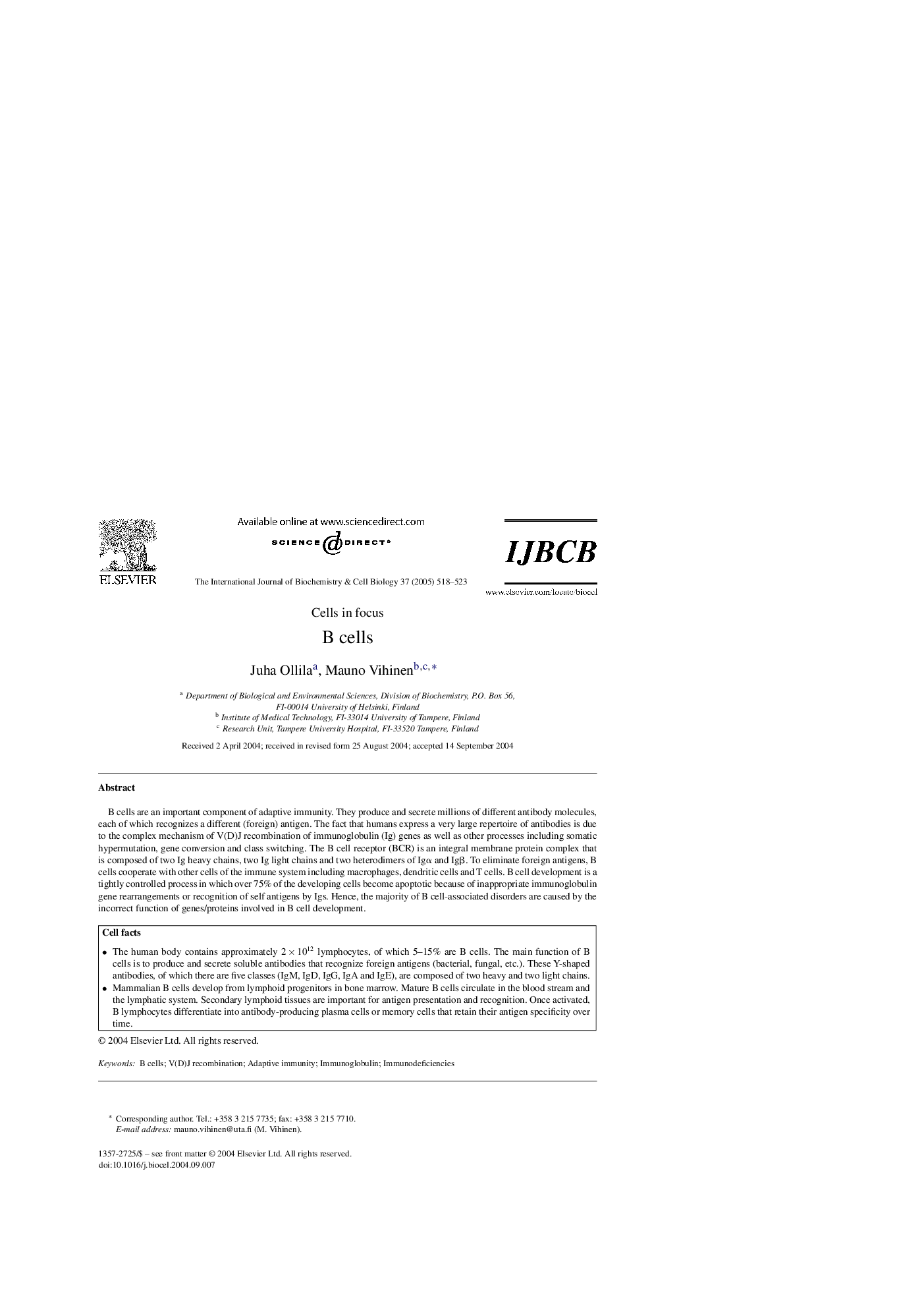| کد مقاله | کد نشریه | سال انتشار | مقاله انگلیسی | نسخه تمام متن |
|---|---|---|---|---|
| 9890072 | 1540000 | 2005 | 6 صفحه PDF | دانلود رایگان |
عنوان انگلیسی مقاله ISI
B cells
دانلود مقاله + سفارش ترجمه
دانلود مقاله ISI انگلیسی
رایگان برای ایرانیان
کلمات کلیدی
موضوعات مرتبط
علوم زیستی و بیوفناوری
بیوشیمی، ژنتیک و زیست شناسی مولکولی
زیست شیمی
پیش نمایش صفحه اول مقاله

چکیده انگلیسی
B cells are an important component of adaptive immunity. They produce and secrete millions of different antibody molecules, each of which recognizes a different (foreign) antigen. The fact that humans express a very large repertoire of antibodies is due to the complex mechanism of V(D)J recombination of immunoglobulin (Ig) genes as well as other processes including somatic hypermutation, gene conversion and class switching. The B cell receptor (BCR) is an integral membrane protein complex that is composed of two Ig heavy chains, two Ig light chains and two heterodimers of Igα and Igβ. To eliminate foreign antigens, B cells cooperate with other cells of the immune system including macrophages, dendritic cells and T cells. B cell development is a tightly controlled process in which over 75% of the developing cells become apoptotic because of inappropriate immunoglobulin gene rearrangements or recognition of self antigens by Igs. Hence, the majority of B cell-associated disorders are caused by the incorrect function of genes/proteins involved in B cell development.
ناشر
Database: Elsevier - ScienceDirect (ساینس دایرکت)
Journal: The International Journal of Biochemistry & Cell Biology - Volume 37, Issue 3, March 2005, Pages 518-523
Journal: The International Journal of Biochemistry & Cell Biology - Volume 37, Issue 3, March 2005, Pages 518-523
نویسندگان
Juha Ollila, Mauno Vihinen,